“Genocide” vs “Self-Defense”: Reflection on the ongoing extermination in Gaza
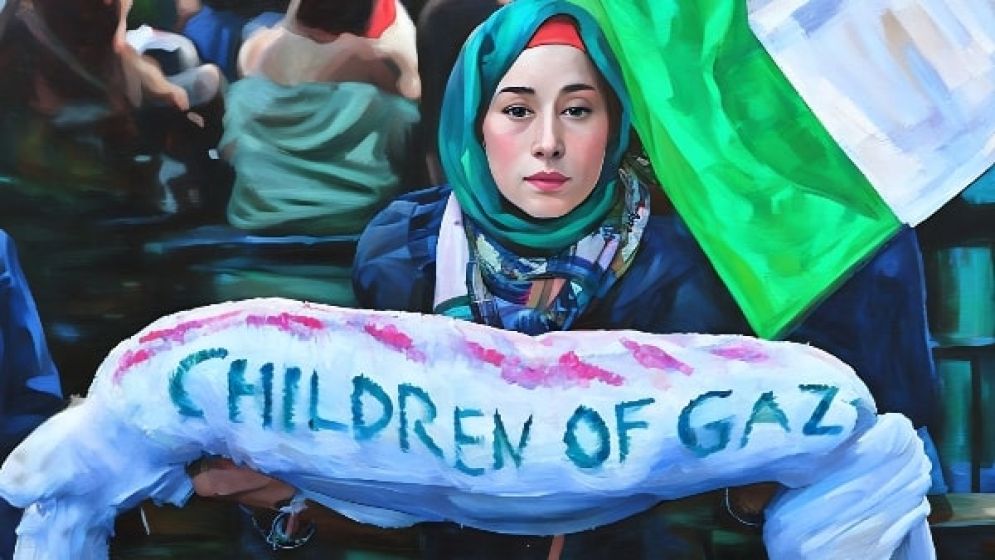
A worldwide movement is advocating for an immediate halt to the ongoing violence in Gaza, which many characterize as genocidal. Despite expressions of support for Israel from several European countries and its allies, significant rallies are emerging in solidarity with Palestinians, demanding an end to the conflict.
University students in the West are at the forefront of this unprecedented movement, encountering arrests and tear gas in their protests. Slogans such as “Stop the genocide” and "Cease the war" resonate widely. Within Israel, protests are also demanding a ceasefire, with demonstrators holding placards accusing Benjamin Netanyahu of having “blood on your hands.”
The field of Genocide Studies fails to classify recent violence against Israel as genocide despite overwhelming charges. The Hamas attack on October 7, 2023, is often compared to the Holocaust, while Israel's subsequent actions are not.
South Africa has accused Israel of genocide in the International Court of Justice (ICJ), but the court has not ruled. Israel argues that South Africa has not shown genocidal intent [from Israel] while formulating its case and claims its actions in Gaza are self-defense under International Humanitarian Law (IHL).
The 1948 United Nations Genocide Convention plays a pivotal role in discussions about whether the violence meets the criteria for genocide, making Gaza a focal point for vigorous political and intellectual discourse.
This essay delves into the arguments within Genocide Studies concerning Israel's actions, offering perspectives from both sides while critically evaluating the Genocide Convention. It highlights how interpretations of international law by influential states are employed to justify their actions.
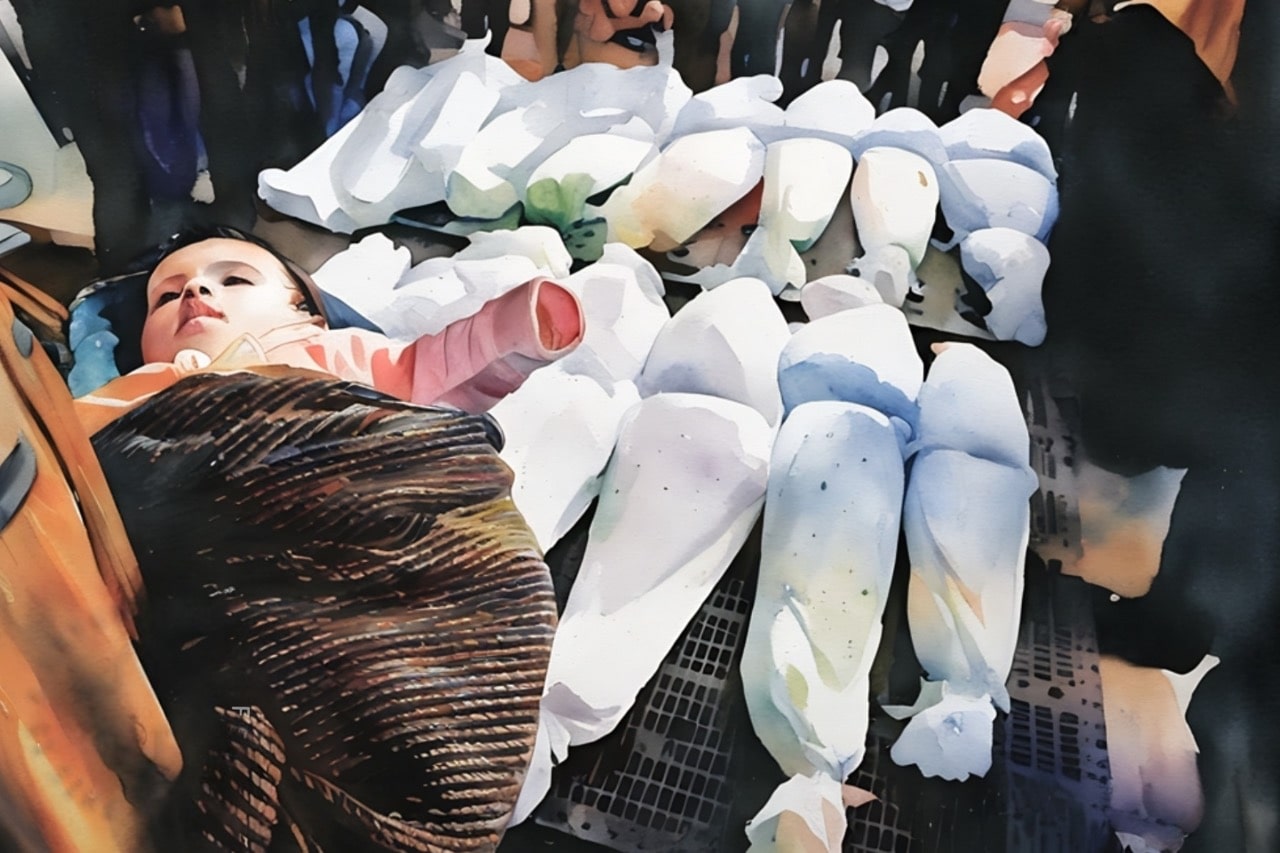
From the largest “open-air prison” to the largest “open-air graveyard”
Although dozens of statements and articles condemned the Hamas attack on October 7, 2023, many Palestinians, who have long lived in what is often described as the world’s largest open-air prison, saw the incident as a "prison break". After years of oppression in their own land, October 7 felt like liberation from Gaza prison.
In reaction, Israeli Defence Minister Yoav Gallant declared a “total blockade” of Gaza, saying, “There will be no electricity, no food, no fuel. Everything's closed. We fight human beasts and will act accordingly.” President Isaac Herzog claimed that “a whole nation” was responsible for October 7's actions and vowed to battle until their “backbones” were broken. Prime Minister Benjamin Netanyahu compared Palestinians to biblical Amalek and demanded their eradication. He called Palestinians “monsters,” casting the conflict as a civilization-versus-barbary struggle.
Gaza suffered catastrophically. As of this writing, 34,789 Palestinians have died in Gaza, including over 14,500 children and 9,500 women. This means nearly two-thirds of victims are women and children.
The United Nations Relief and Works Agency for Palestine Refugees (UNRWA) reports that more children have perished in Gaza in recent months than in the last four years of global conflict. Israeli attacks killed 136 children everyday in the first month.
On October 31, UNICEF mentioned, “Gaza has become a graveyard for thousands of children.” Over 8,000 individuals are missing and 78,000 injured. Women make up 75% of the injured, and 63 die everyday, including 37 mothers. The West Bank has 498 deaths, including 124 minors.
The early months of the invasion saw Israel dump 25,000 tonnes of bombs (equal to two nuclear bombs) on Gaza's buildings, including 2,000-pound "bunker buster" bombs on densely populated "safe zones". About 60% of Gaza's homes, 80% of commercial buildings, and 73% of schools were destroyed.
Only 12 of 35 hospitals are operational while 83% of groundwater sources are depleted. Additionally, 267 religious establishments were destroyed. Over 100 journalists and 340 medics and medical personnel died in Gaza by April 5. An American doctor returning from Gaza said, "I'm an American doctor who traveled to Gaza. I witnessed devastation, not war.”
Mass graves were uncovered at Nasser Hospital and Al Shifa Hospital in Gaza following the withdrawal of Israeli forces from Khan Younis, revealing approximately 400 bodies amid the ruins of a heavily damaged hospital. The blockaded hospitals had become primary targets. Some of the recovered bodies showed signs of torture, including mutilated hands.
The United Nations has denounced these acts as violations of international human rights law. WHO Director-General Tedros Adhanom Ghebreyesus emphasized the tragic transformation of hospitals, traditionally safe havens, into scenes of death, devastation, and despair during the blockade at Al Shifa hospital, urging global attention and action.
Continuous bombing and blockade in Gaza have devastated crops and agricultural lands, triggering a severe famine. Accusations have been leveled against Israel for using starvation as a weapon of war. According to a December report by Human Rights Watch titled “Starvation Used as Weapon of War in Gaza,” Israel is accused of systematically depriving Gazans of food and water.
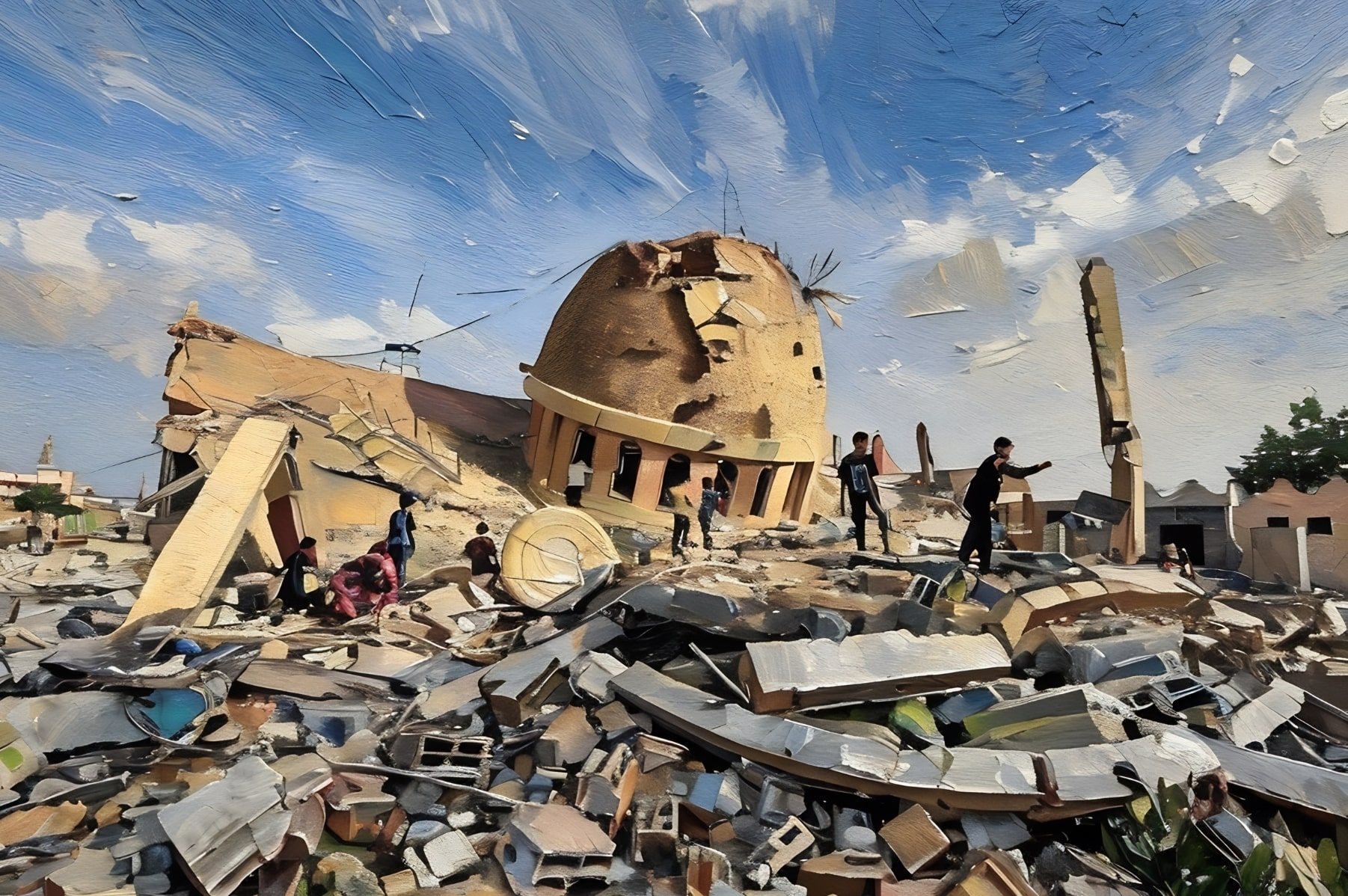
Israeli officials' statements suggest that
starvation is being employed as a tactic of warfare. Senior UN human rights
official Volker Turk told the BBC that there is a "plausible" case
for Israel using starvation as a weapon in Gaza. By early December, 90% of
Gaza's population faced critical food shortages, escalating by February 2024 to
residents in northern Gaza resorting to consuming grass and contaminated water.
El Jamara from Rafah lamented, "We are dying slowly. It might be better to die from bombs, at least then we would be martyrs. But now we are dying from hunger and thirst." Moreover, over a hundred Palestinians have reportedly died during ongoing attacks by Israeli forces during aid distributions in Gaza.
Dilemmas and Debates: Perspectives on Israel’s Actions in Gaza
Before analyzing whether the scenario constitutes genocide, it's crucial to acknowledge the ongoing discussion among experts on how to characterize the situation. In the aftermath of the October 7 incident, several Holocaust and genocide studies institutions and scholars condemned the Hamas attack, describing it as "genocidal" and comparing it to the Holocaust.
The rhetoric of their statements was unmistakably pro-Israel, according to Omar Shahbuddin. Israel's counter attacks have been more destructive, yet these institutions have kept mute. After the October 7 attack, over 150 researchers condemned Hamas, saying: "The atrocities committed by Hamas, the indiscriminate killings of children, women, and men whose only crime was being Jewish, unavoidably bring to mind the mindset and methods of the pogroms that paved the way to the Final Solution."
Following this initial statement, more than 50 Holocaust and genocide scholars issued another statement condemning the Hamas attack while also acknowledging that Israel’s response may contain genocidal elements.
Didier Fassin underlines distinct traits of statements from individuals who only condemn Hamas or call critics of Israel's conduct "anti-Semitic". One such trait is "presentism". This view assumes Israel-Palestine history begins on October 7, ignoring the past. Contemporary narrative ignores the 1948 expulsion, settler colonies in Israel, continued displacement since 1967, daily oppression, murder, living as prisoners in their own land, and resistance to colonialism.
Recent works by several researchers provide diverse perspectives on the violence in Gaza and its classification as genocide. Israeli researcher Raz Segal calls Israel’s attack on Gaza a textbook case of genocide. Around the same time, Martin Shaw stated that Israel’s violence and threats in Gaza undoubtedly had genocidal elements and remarked, "This is not self-defence as international law understands it, and Israel’s very legitimate grievance against Hamas does not justify it."
Zoe Samudzi argued that the recent violence in Gaza fulfills all the criteria of Article II of the Genocide Convention. He emphasized that "Because of the legal impunity that Israel has enjoyed, the question of genocide in Palestine transcends the applicability of the Genocide Convention and can be better sociologically understood through the eight techniques of genocide outlined by Lemkin himself."
Similarly, Mark Levene asserted that accusations of genocide are valid under the current circumstances, pointing out that the targets are not just Hamas and that civilian deaths are not merely "collateral damage" but "a conscious, wilful effort to destroy the integrity of a society." He, early in the conflict, also wrote that Israel was close to committing genocide in Gaza.
Abdelwahab El-Afendi, after analyzing the articles from scholars who joined a forum on the topic "Israel-Palestine: Atrocity Crimes and the Crisis of Holocaust and Genocide Studies", stated that, while there was varying concern about the state of the field, there was a near consensus that Israel’s actions in Gaza are certainly "genocidal" if not outright genocide. He also said that "if an action is so outrageous that people are debating whether it is genocide or not, then it is evil enough to be condemned and harmful enough to make its prevention urgent."
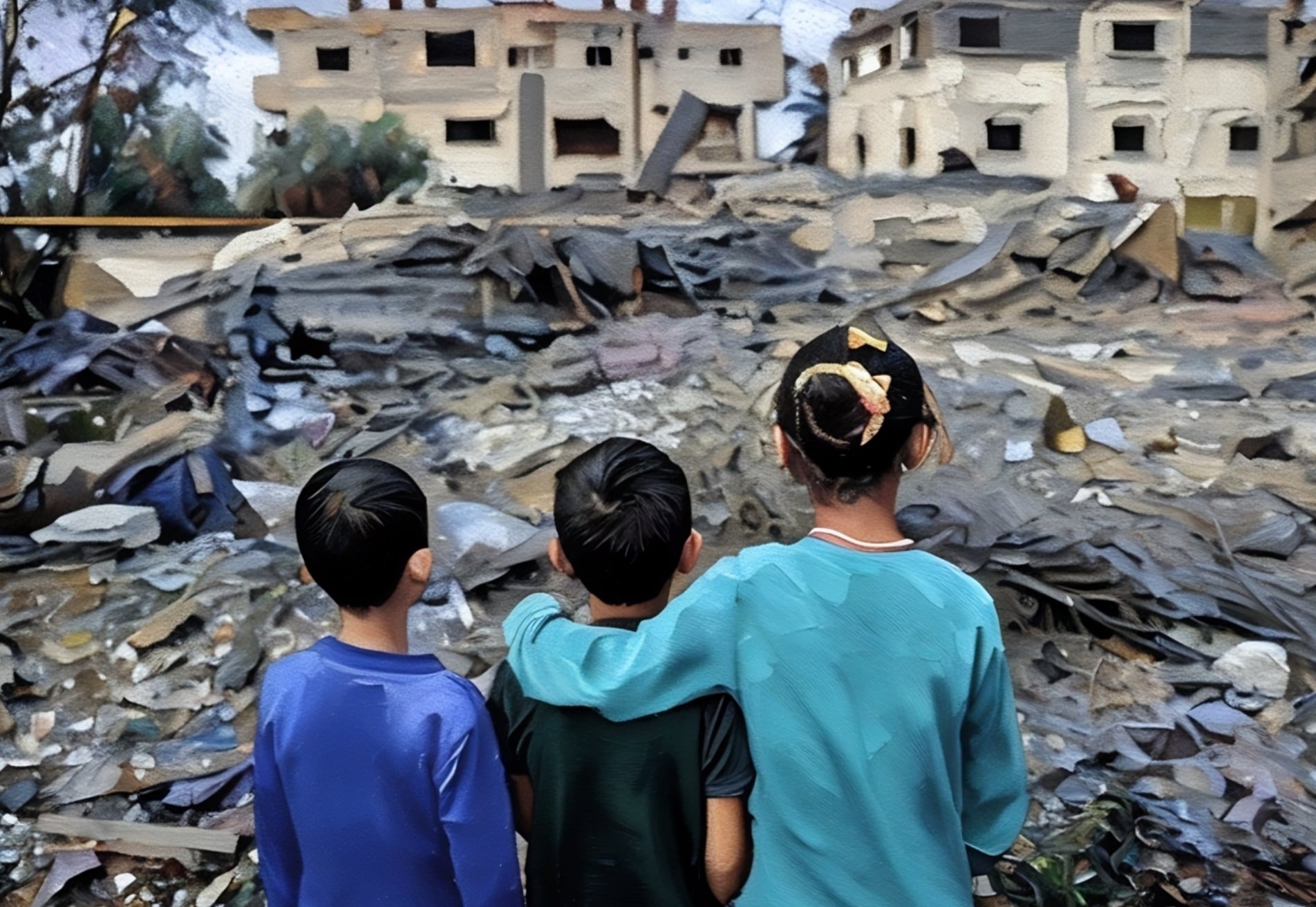
Eva Illouz argued that the humanitarian crisis
in Gaza is a consequence of warfare rather than genocide. She stated, "A
military response, even if fierce, against an enemy that breaches borders and
international law, and employs various tactics to minimize civilian casualties,
does not constitute genocide. It is possible that Israeli military actions
could be deemed war crimes, which will become clearer after the conflict ends.
However, even war crimes do not equate to genocide."
Similarly, Israel Charny contended that the conflict in Gaza is morally and legally justifiable. He proposed a new concept of self-defense: "Israel is legitimately defending itself in response to and to prevent future genocidal attacks that use civilians as human shields."
The Geneva Conventions explicitly prohibit the use of human shields and justify defensive actions in response. Self-defense excludes genocidal intent." Later, we will explore how this concept of "Self-Defense against Future Genocidal Attacks" can be examined through the lens of permanent security.
Genocide and the question of intention
The 1948 Genocide Convention underpins all disputes about whether Hamas' October 7 attack and Israel's reaction were genocide. There are many disputes on this definition, however I will briefly touch on a few things.
Definition from the Convention: Genocide is any of the following acts committed with the intent to destroy, in whole or in part, a national, ethnical, racial, or religious group: (a) Killing group members; (b) Causing serious bodily or mental harm to group members; (c) Deliberately inflicting conditions of life on the group calculated to bring about its physical destruction.
This definition raises several key distinctions that differentiate genocide from other forms of killing or violence (cide). Firstly, it requires intent, signifying a deliberate goal to eradicate the targeted group. Secondly, the phrase 'in whole or in part' delineates the extent of destruction. Thirdly, it identifies the categories of groups that can be targeted: national, ethnic, racial, or religious. Fourthly, it enumerates specific acts that constitute genocide.
Notably, genocide includes not just killings but also deliberate actions intended to endanger the existence of a group. These actions encompass killing group members, causing severe physical or mental harm, deliberately imposing conditions that could lead to physical destruction, implementing measures to prevent births within the group, and forcibly transferring children from one group to another.
Thus, according to this definition, genocide occurs when these acts are perpetrated with the intention of annihilating a group, whether in whole or in part.
While the Genocide Convention carries substantial legal significance, it has encountered criticism in academic spheres. Critics have highlighted several concerns, such as the omission of political groups as designated victims, the neglect of cultural genocide, the potential for states to manipulate their narratives, the enduring influence of colonial governance structures, and the ambiguity surrounding specific terms.
Discussions on genocide often emphasize these limitations depending on the context, and there is also scrutiny over the Eurocentric nature of the victim categories specified in the convention.
In discussing Palestine, the question of intent is crucial. Recent accusations of genocide against Israel and Myanmar underscore the importance of proving this element. The Genocide Convention sets a high bar for defining genocide, emphasizing that mere destruction isn't enough; there must be a clear intent to destroy a targeted group. For Palestinians, this would mean proving that killings are specifically because they are Palestinian, similar to the situation with the Rohingyas.
States often try to cloud the issue by claiming killings are for other reasons, like counterinsurgency or national security. We'll examine this in the Israel/Palestine context soon. First, let's discuss how intent can be proven. There are two main ways: Official declarations from state leaders or institutions and coordinated actions that systematically target a specific group.
Some scholars suggest using the second paragraph of the UN definition, which lists acts like killing, harming, preventing births, and forcibly transferring children. These actions can't happen accidentally; they require planning and show intent to destroy. Terms like "premeditated destruction," "coordinated planning," and "deliberate destruction" clarify the concept of intent, highlighting central directives and systematic planning as proof of genocidal intent.
To be clear, we are focusing on the violence after October 7th, though accusations of genocide or ethnic cleansing against Israel have been made before. Two significant reports frame the post-October 7 situation in Palestine as "genocide."
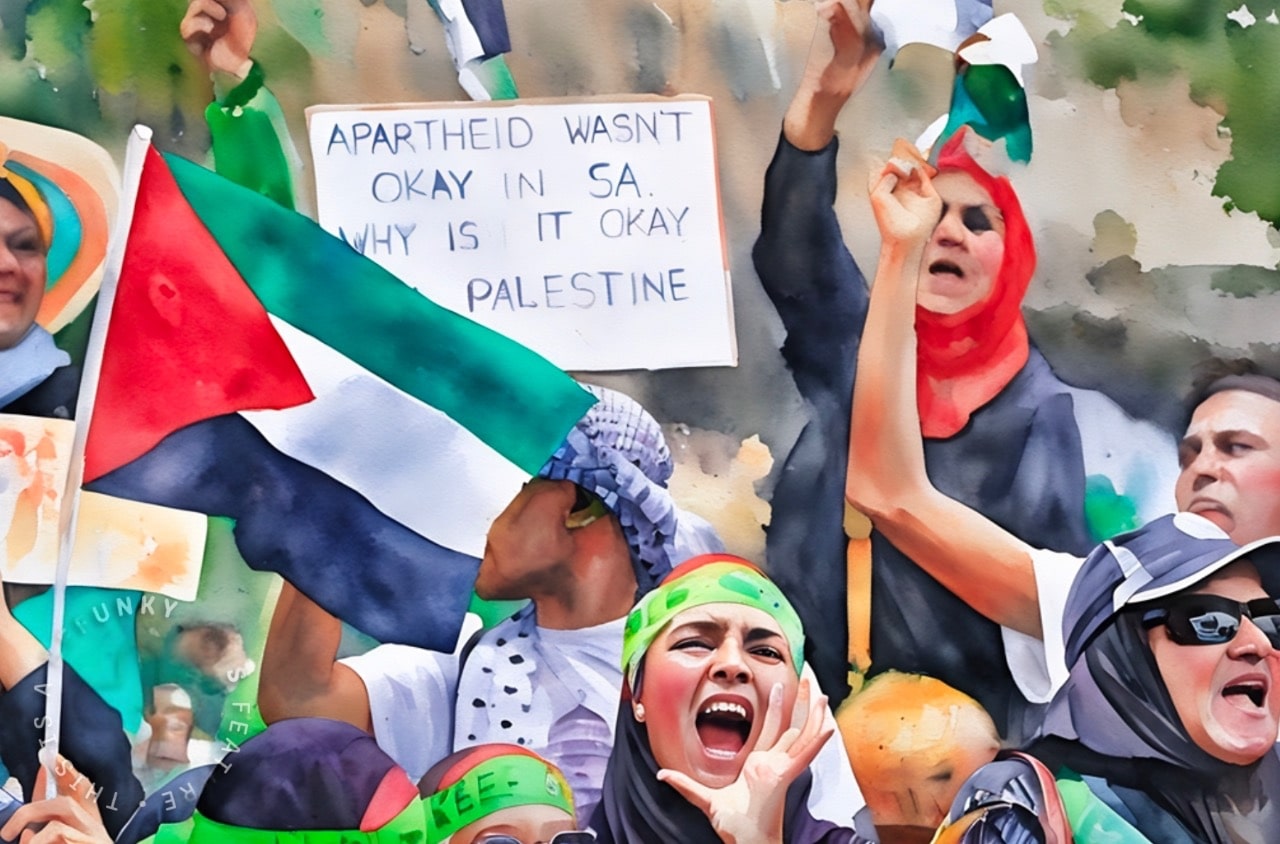
UN expert Francesca Albanese recently
published a report titled "Anatomy of Genocide," where she views
genocide as an ongoing process, not just a single act. Through the lens of
settler colonialism, Albanese argues that the very nature of any settler
colonial project inherently contains genocidal intent and actions.
Albanese places the recent events in Gaza within the wider historical context of Israel's settler-colonial project in Palestine since 1967. She breaks down the preceding violence into three components that align with the definition of genocide. Albanese argues that "Gaza has been completely sacked.
Israel's relentless targeting of basic survival means has made it impossible for Palestinians to live there. This deliberate destruction of life-sustaining infrastructure matches the stated goals of making Gaza 'permanently impossible to live in' where 'no human being can exist."
Albanese identifies three key ways to determine intent: examining the context and circumstances of the situation, evaluating the nature and scale of the atrocities, and finding evidence of state planning. Direct evidence can come from official statements, speeches, and announcements. Dehumanization, a precursor to genocide, is often used to signal intent.
Albanese examines dehumanizing language from various levels of Israeli society, including the Prime Minister, to support claims of intent in the Israel/Palestine context. She argues that "The words of state authorities, including dehumanizing language, combined with their actions, provide circumstantial evidence from which intent can be inferred."
Earlier, I discussed statements from three Israeli state officials in the aftermath of October 7. President Isaac Herzog held all Palestinians responsible for the events, calling for their resilience to be broken. The Prime Minister compared Palestinians to "Amalek" and "monsters", while the Defense Minister referred to them as "human animals". IDF spokesman Daniel Hagari outlined their goal as causing "maximum damage", and Minister of Agriculture and Rural Development Avi Dichter characterized Israel's actions as the "Gaza Nakba".
Furthermore, another minister proposed a "nuclear bomb" attack on Gaza, while a social media post advocated for indiscriminate bombing with phrases like "Bring down buildings!! Bomb without distinction!!…Flatten Gaza. Without mercy! This time, there is no room for mercy!" Such genocidal rhetoric has spread widely across various sectors of Israeli society since October 7, including religious leaders, journalists, artists, political commentators, and politicians.
Albanese argues that these calls for violence directly influence soldiers on the ground, building upon decades of dehumanizing discourse toward Palestinians. Israel's Prime Minister and President justified their actions as defending "all civilized nations and peoples," echoing colonial power dynamics in Israel/Palestine.
These attitudes reflect a historical pattern of violence normalization by colonial authorities under the pretext of suppressing rebellion or civilizing the "savage." It is noteworthy that Francesca Albanese received threats following the publication of this report.
Another notable development regarding Israel's actions in Palestine involves South Africa's case against Israel at the International Court of Justice. In December 2023, South Africa lodged a complaint accusing Israel of violating the Genocide Convention and specifically alleging acts of genocide.
The charges against Israel include killing Palestinians, inflicting physical and mental harm, forcibly displaced populations and imposing food blockades, destroying the healthcare system, and preventing Palestinian births. These allegations correspond to the offenses delineated in the Genocide Convention. Additionally, the directive to evacuate a hospital within 24 hours without medical equipment or assistance for patient transfer was condemned as "genocidal".
They seek to establish intent before the court through three main arguments. Firstly, they argue that Israel's repeated military offensives imply genocidal intent. This includes forcibly relocating Gaza's population to vulnerable areas and deliberately creating conditions that lead to their gradual demise.
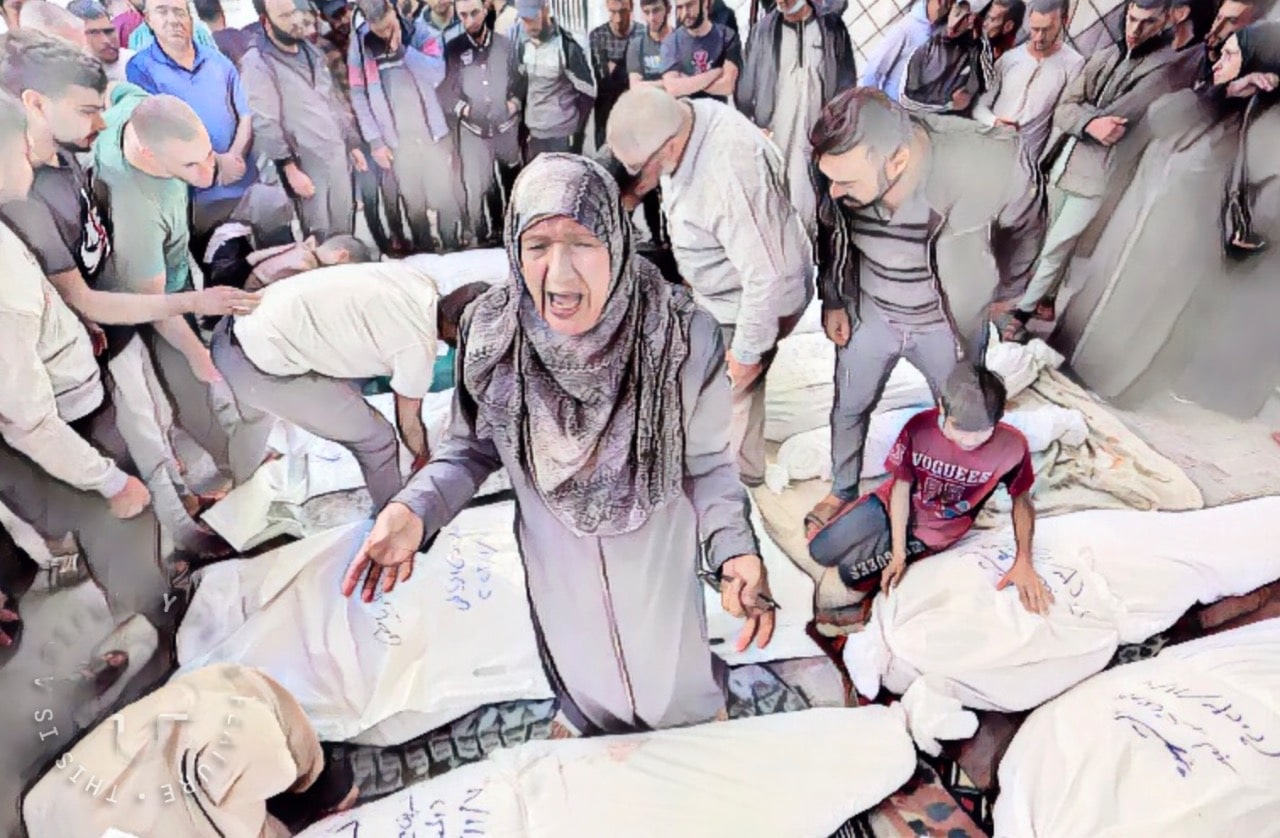
Secondly, they highlight specific trends in
the attacks, such as the death of approximately 1% of Gaza's Palestinian
population and injuries to 1 in 40 individuals since October 7. These trends
collectively suggest Israel's intention to eradicate the Palestinian population
in Gaza.
Thirdly, they present statements and speeches from authorities in charge that explicitly endorse the killing and destruction of Palestinians. Numerous such declarations have been submitted as evidence before the court.
After hearing arguments from both parties, the court stopped short of explicitly categorizing Israel's military actions as "genocide", yet acknowledged that they displayed genocidal characteristics. The court mandated "immediate and effective measures" to protect Palestinians in Gaza from potential genocide. However, a month later, Amnesty International reported that Israel had not taken any significant steps in response.
In both cases, Israel's military operations in Gaza are being presented as potential "genocide" under the Genocide Convention. The extensive destruction caused by Israel aligns with the specific "acts" outlined in the Convention, a point not disputed by Israel itself or those who argue against labeling its actions as genocide. Rather, the debate centers on whether this destruction includes the "intent" required to constitute genocide.
Moreover, the claim that these incidents qualify as genocide based on "intent" is supported by reports and court proceedings, as previously mentioned. Establishing intent, the crucial element, involves analyzing patterns of aggression and examining statements and declarations made by Israeli authorities.
Self-Defense as a Shield
Israel claims Hamas's "attack" prompted its October 7 military strikes in "self-defense". To them, "The Genocide Convention was not designed to address the brutal impact of intensive hostilities on the civilian population. The convention was set apart to address a malevolent crime of the most exceptional severity."
Critics of Israel, like Eva Illouz, believe a military response to an enemy who breaks international law is justified. A response that may be cruel may not be genocide, yet it may still be considered war crimes.
To comprehend Israel's justification of its actions through varied interpretations of the Genocide Convention, we must consider two perspectives.
Firstly, the Holocaust had a profound impact on shaping the Genocide Convention. Negotiations were intricate due to the perception of the Holocaust as a singular and legally precise example of genocide, unlike subsequent events. The straightforward portrayal of the Holocaust as a case of "good versus evil" was instrumental in crafting the Genocide Convention but does not neatly align with post-colonial state violence or other forms of contemporary conflict.
Therefore, the Holocaust is frequently seen as a singular event, leading some to believe that Israel, influenced by the Holocaust, is incapable of perpetrating genocide. This belief is evident in public discourse, where references to the Holocaust often arise in response to attacks against Israel, yet there is minimal acknowledgment of Israel's subsequent military actions.
Furthermore, public discourse hierarchizes genocide, war crimes, and crimes against humanity. Genocide is viewed as an unparalleled crime that profoundly impacts human society. This perspective often results in genocide being exclusively compared to the Holocaust, with other violent events evaluated through the lens of Holocaust experiences.
This approach necessitates simplifying facts to conform to legal definitions, sparking extensive debates about categorizing post-Holocaust violent incidents as genocide. Revolts against colonial rule and state violence in quelling rebellions complicate the simplistic "good versus evil" narrative, posing challenges in identifying these events as genocides.
Secondly, when states drafted the Genocide Convention in 1948, they established stringent criteria for defining “genocide.” A crucial component of this criterion involves distinguishing between “genocidal intent” and “military intent” or military necessity. Military intent seeks to defeat an adversary, whereas genocidal intent aims to eradicate a specific group.
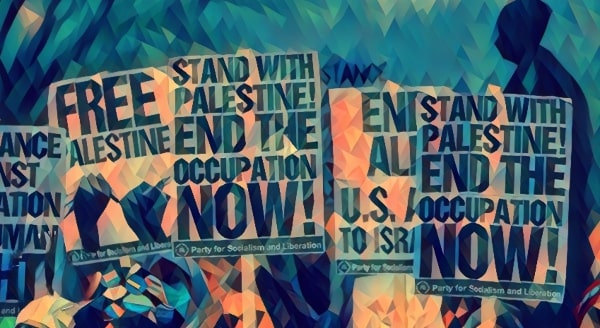
Let's explore this distinction further.
Israeli lawyers and researchers frequently advance two primary arguments:
“self-defense” and “military necessity.” These concepts are closely related. In
the context of a colonized population revolting, the colonial power might
suppress the revolt under the guise of “self-defense,” deeming the military
response necessary.
Although genocide is a serious crime, when a state’s security is challenged by a rebel group (such as Hamas), it becomes a security issue framed as “military necessity.” If ten people die in a mutiny and a thousand die in suppressing it, the suppression is seen as having a “military intention” rather than a “genocidal intention.”
Throughout history, widespread state violence against civilians has often been rationalized as "self-defense." Since the 16th century, settlers have characterized indigenous resistance as "terrorism," framing their own violence as heroic and essential for a "noble" cause, underpinned by racial and civilizational hierarchies.
This colonial mindset persists today, evident in attempts to impose "democracy" on the Arab world and the portrayal of Israel as the region's sole "democratic state." Consequently, any assaults on Israel are construed as assaults on "civilization," legitimizing Israeli violence as "noble," even in extreme circumstances.
In his analysis, Dirk Moses argues that the concept of "permanent security" is a key driver of genocidal violence by modern states. States, aiming to not only address immediate threats but also permanently eliminate any future risk, often invoke "self-defense" to justify actions that violate international law and harm civilian populations.
This pursuit of a utopian ideal of ultimate security can lead to devastating consequences, as exemplified by Israeli officials' arguments for "permanent security" in Gaza, suggesting the need to render the area uninhabitable to prevent future threats from Hamas.
Under the guise of self-defense and the justification of perpetual security, genocide can be framed as a military necessity. The differentiation between genocidal and military "intentions," as outlined in the 1948 Genocide Convention, enables states to evade allegations of genocide while engaging in such actions. The strategic imperatives for states to quell insurgencies often transcend the realm of genocide, guided by military considerations.
Dirk Moses highlighted Israel as a case in point during a recent interview discussing the constraints of the Genocide Convention: “The aim of the [U.N.] delegates — and they said this, if you read the transcripts of 1948 — in creating this very high threshold of exceptional violence is precisely so states can engage in the kind of warfare that Russia is engaging in, that Israel is engaging in and that America engaged in in Korea in the early 1950s, where they killed 2 million North Koreans and later killed millions with bombing and Agent Orange in Vietnam — and not be prosecuted for genocide.”
Therefore, according to Dirk Moses, the Genocide Convention fails to adequately represent the viewpoint of the victims. The Convention provides protection for states pursuing or claiming perpetual security against allegations of genocide.
Despite starvation being deemed a violation of international humanitarian law as a warfare tactic, Israel justifies its actions based on "intent". Rather than characterizing these actions as an intention to annihilate Palestinians, Israel portrays them as a strategy to defeat its military adversaries.
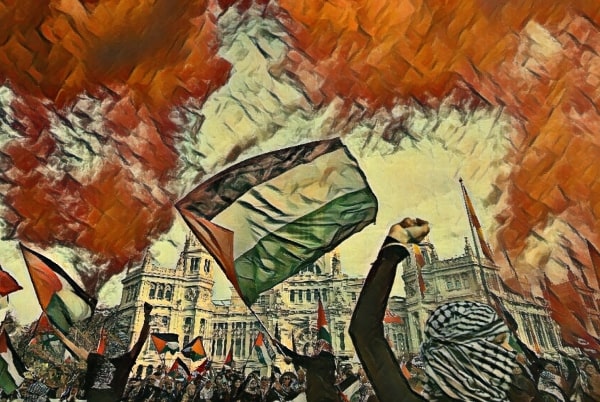
An Unending Tragedy of Relentless
Violence
The International Court of Justice case against Israel holds immense significance as Israeli attacks persist, fueling ongoing violence. Global protests and resistance movements continue to denounce the situation under the banner "Stop Genocide." While legal and academic experts debate the precise legal definition of "genocide," public opinion overwhelmingly identifies the violence as such. The widespread international protests against the accusations of genocide highlight the perceived shortcomings of international law in effectively addressing war crimes and crimes against humanity.
Those living under oppression, such as Palestinians, continue to endure a dire and perpetual situation. They confront daily violence and are experiencing a gradual erasure. Resistance from them often results in escalated state violence, justified under the guise of complex agreements and peace processes.
Many consider Palestinian resistance or Hamas violence in the recent conflict a provocation. The international society demands “non-violent” behavior from colonized people despite decades of systematic violence, destruction, and displacement. Abdal Jawad Omar correctly notes: “There is brutality in this insistence on nonviolence by the world community since it is practically an encouragement for Palestinians to lie down and die."
—
Sohul Ahmed is a Researcher and Writer interested in Genocide, Violence, History, Politics and Decolonization studies.

